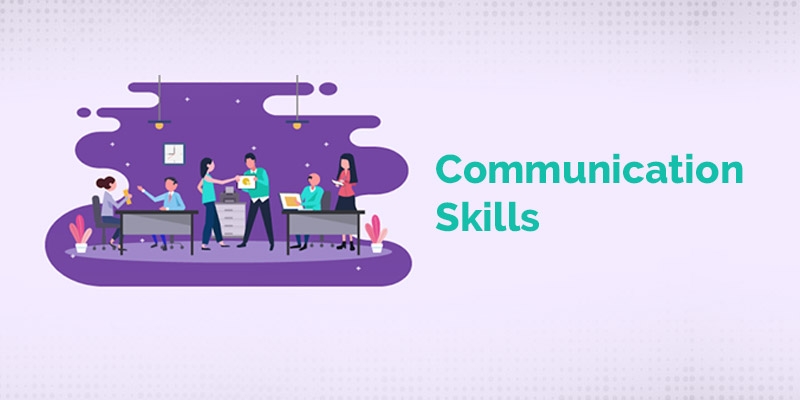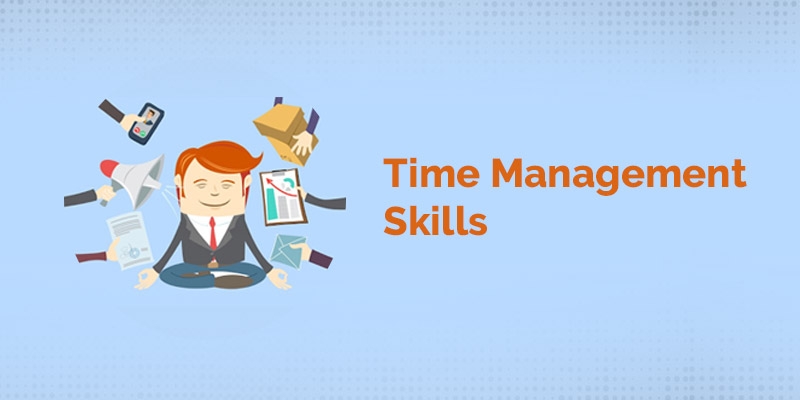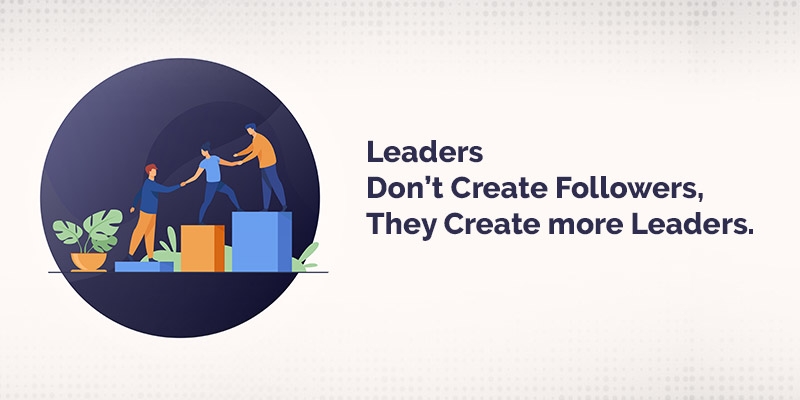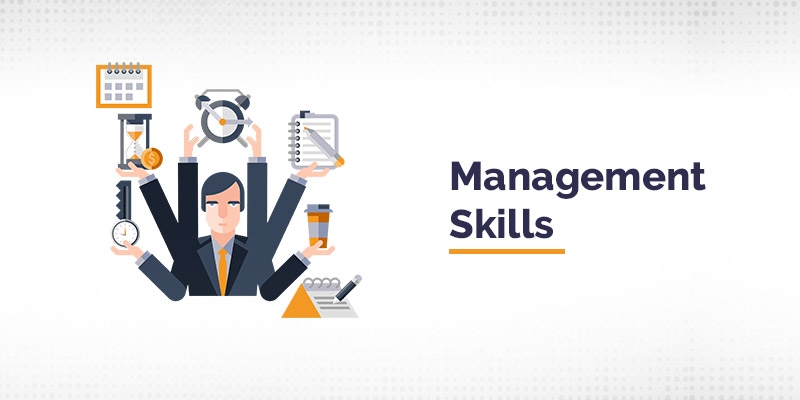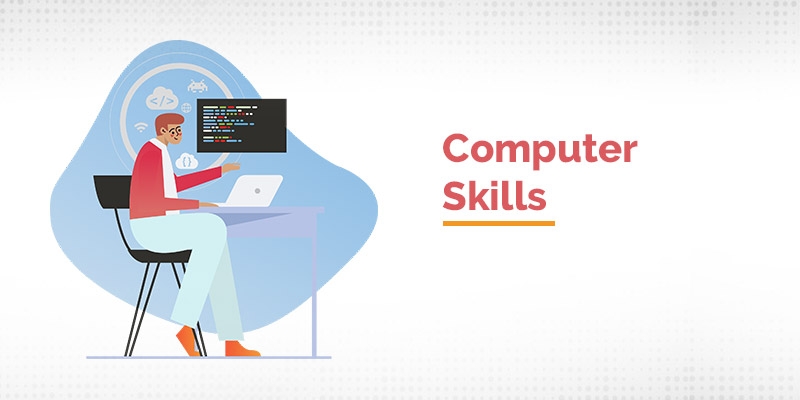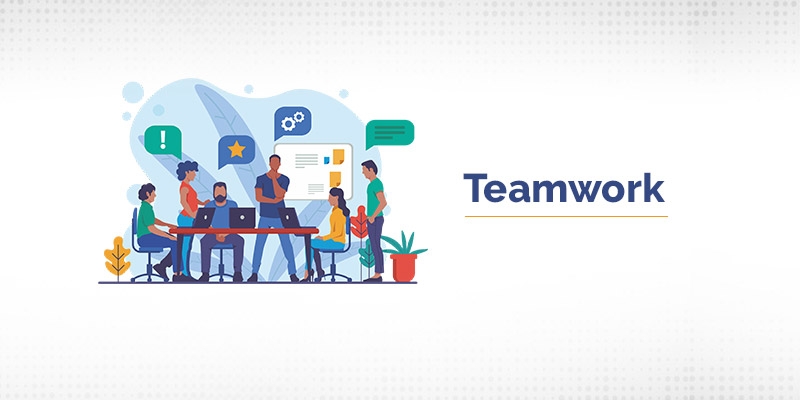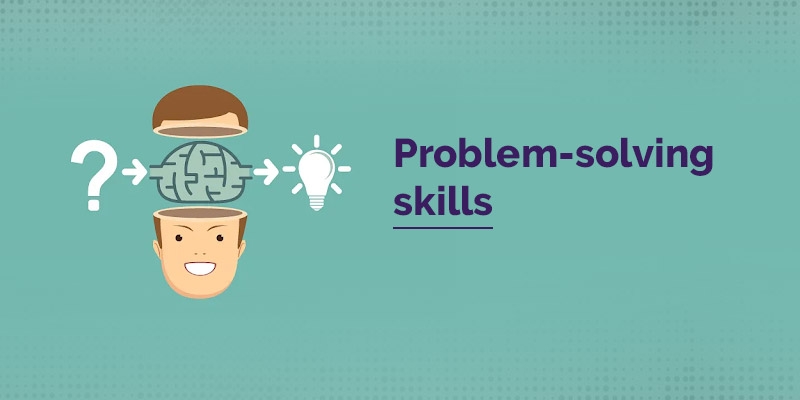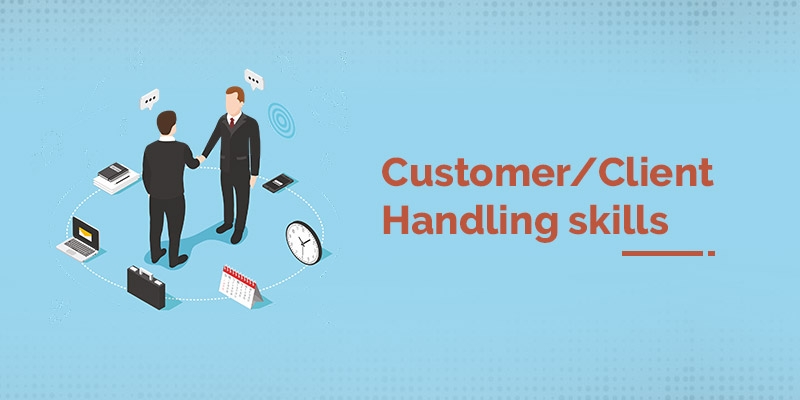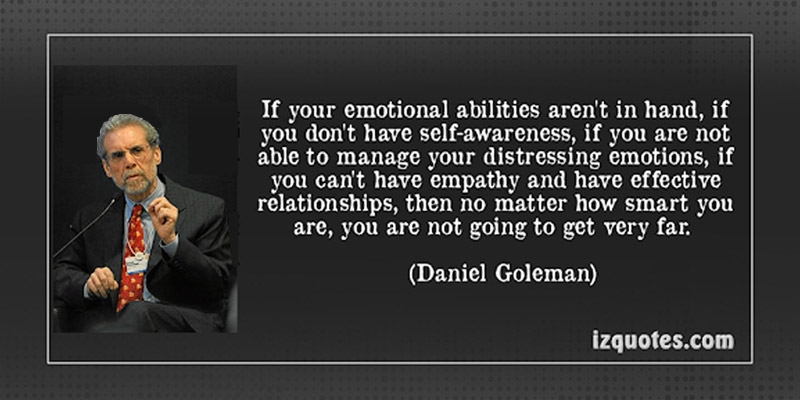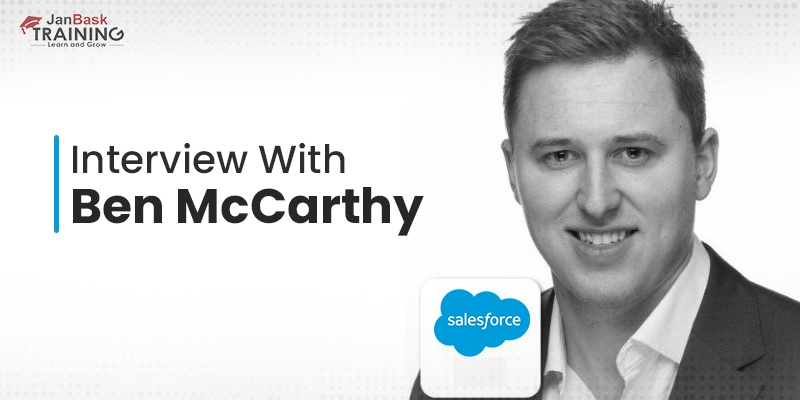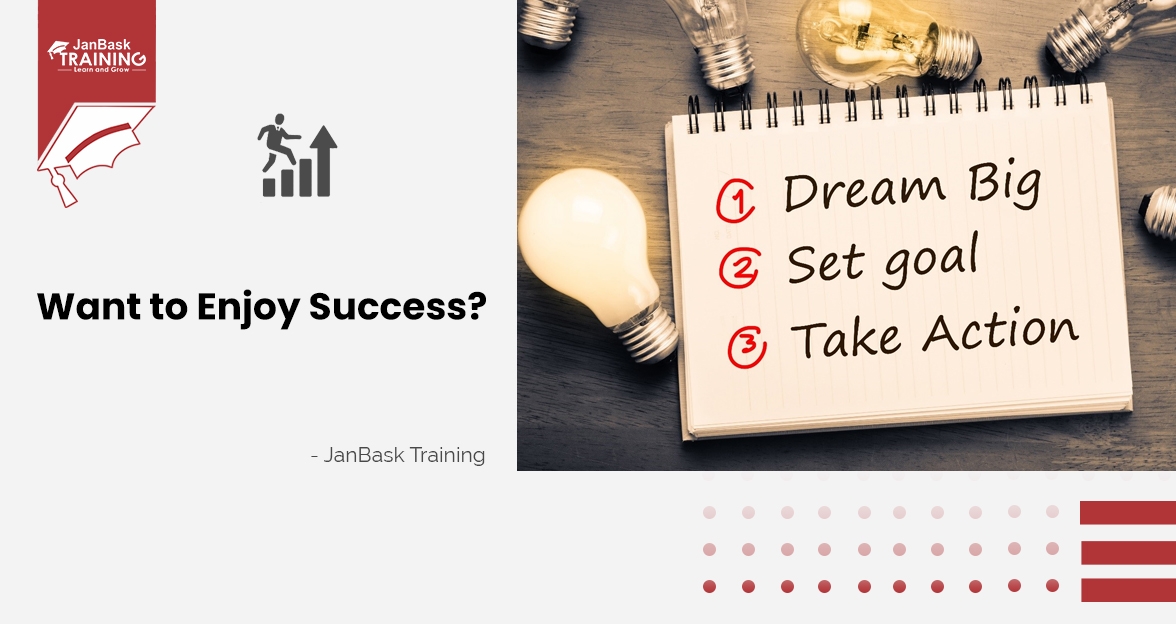Introduction
Ever wonder what sets exceptional candidates apart? It's not just technical expertise. Recruiters crave well-rounded professionals with a unique blend of professional skills. These are the competencies that showcase your ability to thrive in the workplace beyond technical knowledge.
Unlike hard skills learned in coursework, professional skills develop through real-world experiences. They're the adaptability honed during projects, the communication skills sharpened through teamwork, and the problem-solving finesse gained by tackling challenges.
While impressive technical skills are crucial, professional skills are your secret sauce. They demonstrate your ability to collaborate effectively, think critically, and navigate complex situations - all qualities that make you a valuable asset.
But where do you begin? Don't fall into the trap of generic online lists. This guide will be your one-stop shop:
- The Top 15 Professional Skills Recruiters Look For: Discover the essential skills employers seek in high-caliber candidates, with practical examples to showcase them on your resume.
- Unearthing Your Hidden Gems: Learn how to identify and refine your existing professional skills through self-evaluation and experience reflection.
- Crafting a Resume that Shines: Discover effective strategies for integrating these skills seamlessly into your resume, making a lasting impression on potential employers.
Get ready to unlock your professional potential and land your dream job!
Top 15 Professional Skills for Resume - That can Get You Hired
1. Communication Skills

Communication skills are the bedrock of a thriving professional career. They encompass your ability to effectively encode and decode information, ensuring clarity and understanding in every interaction. From interviews to presentations, clear communication allows recruiters to gauge your ability to:
- Listen actively: Pay close attention, understand nuances, and ask clarifying questions.
- Speak articulately: Express yourself fluently and confidently, tailoring your message to the audience.
- Write persuasively: Craft clear, concise, and grammatically correct written communication, be it emails, reports, or proposals.
- Empathize effectively: Understand and acknowledge the perspectives and emotions of others.
Professional communication goes beyond words. It includes:
- Non-verbal cues: Maintaining eye contact, using appropriate body language, and projecting confidence.
- Collaboration skills: Working effectively with others to achieve common goals.
Strong communication skills are a multi-faceted asset. They enable you to:
- Handle constructive criticism effectively.
- Brainstorm innovative ideas.
- Deliver impactful presentations.
- Navigate complex situations with different personalities.
- Persuasively advocate for your ideas.
- Build strong professional relationships through effective networking.
By honing your communication skills, you unlock your potential to excel in any professional setting.
2. Time Management Skills

In today's fast-paced work environment, time management is an essential professional skill. Organizations prioritize both timeliness and quality deliverables. Meeting deadlines consistently demonstrates your dedication to achieving goals while maintaining a healthy work-life balance.
Effective time management empowers you to:
- Become a master of prioritization: Identify and tackle the most critical tasks first, ensuring efficient use of your time.
- Embrace organization: Develop systems and strategies to keep yourself organized, minimizing wasted time and maximizing productivity.
- Delegate effectively: Learn to delegate tasks appropriately, empowering others and freeing up your time for higher-level priorities.
- Cultivate punctuality: Respect deadlines and commitments, demonstrating reliability and professionalism.
- Become self-starting: Take initiative and manage your workload proactively, without needing constant micromanagement.
- Manage projects effectively: Effectively plan, execute, and deliver projects on time and within budget.
- Maintain a keen eye for detail: Deliver high-quality work while adhering to deadlines.
- Maximize productivity: Focus on results and minimize distractions, achieving more in less time.
By mastering time management, you become a valuable asset to any organization. You'll consistently deliver exceptional results, manage multiple tasks efficiently, and impress employers with your dedication and reliability.
3. Active Listening Skills

Exceptional communication is a two-way street. While clear expression is vital, being a masterful active listener is equally important. This skill allows you to grasp information accurately, fostering strong professional relationships and successful collaboration.
Active listening goes beyond simply hearing words. It's about:
- Paying close attention: Focus intently on the speaker, avoiding distractions and demonstrating genuine interest.
- Asking clarifying questions: Seek to understand the speaker's intent and ensure you haven't misinterpreted any nuances.
- Taking notes: Jot down key points to solidify your understanding and refer back to later if needed.
- Demonstrating empathy: Acknowledge the speaker's emotions and perspectives, fostering trust and rapport.
- Engaging in the conversation: Respond thoughtfully, ask relevant questions, and show you're present in the moment.
Active listening empowers you to:
- Brainstorm effectively: Build upon ideas and contribute meaningfully to discussions.
- Resolve conflicts constructively: By fully understanding different viewpoints, you can find common ground and reach solutions.
- Provide exceptional customer service: Truly hear your clients' needs and concerns, leading to higher satisfaction.
- Learn and grow: Actively listen to feedback and insights from colleagues and superiors to improve your skills and knowledge.
By honing your active listening skills, you become a more valuable team player, build stronger relationships, and gain a deeper understanding of the world around you.
4. Leadership Skills

Leadership isn't just for those in designated management positions. Every professional can cultivate leadership skills to drive shared goals and inspire others. It's more than delegating tasks; it's about fostering a collaborative environment where everyone thrives.
Effective leaders:
- Build strong teams: Create a sense of unity, trust, and psychological safety within the team.
- Motivate and inspire: Energize and empower others to reach their full potential.
- Embrace calculated risk-taking: Identify and navigate opportunities to achieve success.
- Mentor and guide: Share knowledge and experience to help others grow professionally.
- Manage projects effectively: Plan, delegate, and oversee projects to ensure timely completion and success.
- Demonstrate flexibility: Adapt to changing circumstances and implement solutions creatively.
- Cultivate a positive attitude: Maintain a positive outlook, motivating and inspiring others.
- Plan and execute strategically: Develop clear goals, strategies, and action plans.
- Embrace accountability: Hold themselves and others responsible for achieving goals.
- Set SMART goals: Specific, Measurable, Achievable, Relevant, and Time-bound goals for individuals and teams.
- Manage budgets effectively: Allocate resources wisely and track spending to achieve objectives.
- Prioritize effectively: Focus on the most important tasks to maximize impact.
- Gather and analyze information: Make informed decisions based on data and insights.
- Coordinate resources efficiently: Utilize resources effectively to achieve common goals.
- Make sound decisions: Weigh options, consider consequences, and choose the best path forward.
By developing your leadership skills, you become a valuable asset in any team setting. You'll inspire collaboration, navigate challenges effectively, and contribute to a culture of excellence.
5. Interpersonal Skills
The ability to connect and build rapport with others is essential for professional success. Interpersonal skills are the tactics and behaviors you use to interact effectively with colleagues, clients, and superiors.
Strong interpersonal skills encompass:
- Effective communication: Express yourself clearly, actively listen to others, and tailor your communication style to the audience.
- Empathy: Understand and acknowledge the feelings and perspectives of others, fostering trust and collaboration.
- Emotional intelligence: Manage your own emotions and navigate the emotions of others to create a positive work environment.
- Patience: Remain calm and collected under pressure, especially when working with challenging personalities.
- Resilience: Bounce back from setbacks and maintain a positive attitude.
- Flexibility: Adapt to changing circumstances and work effectively with diverse personalities.
- Change management: Embrace and navigate periods of transition, helping others adjust as well.
- Teamwork: Collaborate effectively with others to achieve common goals.
- Leadership: Inspire and motivate others, fostering a sense of unity and purpose.
By honing your interpersonal skills, you become a valuable team player, build strong relationships, and create a more positive and productive work environment.
6. Management Skills

Management skills encompass the ability to effectively balance people, tasks, and resources to achieve organizational goals. They are valuable for both team leaders and individual contributors who need to manage their own workload.
Strong management skills involve:
- Project planning: Develop clear roadmaps for projects, outlining tasks, timelines, and deliverables.
- Team communication: Communicate effectively with your team, ensuring everyone is aligned and informed.
- Delegation: Assign tasks appropriately, empowering team members and maximizing efficiency.
- Accountability: Hold yourself and others responsible for meeting deadlines and achieving goals.
- Decision-making: Weigh options, consider risks, and make sound decisions that drive progress.
- Risk management: Identify potential challenges and develop strategies to mitigate them.
- Change management: Navigate periods of transition effectively, guiding yourself and your team through adjustments.
- Resource collaboration: Utilize resources efficiently and ensure everyone has the tools they need to succeed.
By developing your management skills, you demonstrate your ability to take initiative, organize effectively, and lead others towards achieving common goals. This makes you a valuable asset in any role, contributing to a well-functioning and successful organization.
7. Computer Skills

Computer skills are no longer optional in today's digital workplace. Regardless of your specific role, proficiency in essential hardware and software applications is crucial for success. The depth of knowledge you need will vary depending on your field. For instance, a salesperson might benefit from mastering customer relationship management (CRM) software, while a programmer would require expertise in specific coding languages.
Here's a breakdown of essential computer skills:
- Operating Systems: Navigate operating systems like Windows, macOS, or Linux comfortably.
- Productivity Software: Master core applications like word processing (e.g., Microsoft Word, Google Docs), spreadsheets (e.g., Microsoft Excel, Google Sheets), and presentation software (e.g., Microsoft PowerPoint, Google Slides).
- Email Management: Effectively manage email communication, including organization, etiquette, and utilizing features like calendars and contacts.
- Basic Troubleshooting: Diagnose and solve common technical problems independently.
- Software Installation & Operation: Install and use new software applications with ease.
For some roles, additional skills may be required:
- Database Management: Work with database software to store, organize, and retrieve data.
- Programming Languages: Learn specific coding languages relevant to your field (e.g., Python, Java, SQL).
- Graphic Design Software: Utilize design software like Adobe Photoshop or Canva for visual communication.
By honing your computer skills, you demonstrate adaptability, efficiency, and the ability to thrive in a technology-driven environment. This makes you a strong candidate for any position and allows you to contribute effectively in an increasingly digital world.
8. Teamwork

All professionals work in a team or group directly or indirectly. It is immense to have a great teamwork attitude. For professionals, it is a must to have great interpersonal skills to get along with others, communicate, and get the work done before deadlines in collaboration with the required team while following the shared values and company’s long-term objectives.
A professional should know how to manage and interact within teams of any scope, size, or intensity.
Here is what Teamwork skills include:
- Relationship Building
- Team Management
- Team Building
- Goal Setting
- Conflict Resolution
- Project management
- Timeliness
9. Problem-solving skills

Problem-solving skills are the ability to access any problem-statement of dynamic nature and reach out to its effective & well-timed solutions. Problem-solving skills are prerequisite in any organization. Every professional in every job-role is expected to be a great problem-solver who could help organizations trace the deviations or roadblocks in the journey of transformation of inputs into outputs.
Here is what Problem-solving skills include:
- Research & Development
- Patience
- Communication & collaboration
- Far-sightedness
- Intuitiveness
- Technical acumen
- Attention to detail
- A knack for task completion
- Project management & handling
- Timeliness
10. Customer/Client Handling skills

Customer skills are the traits or actions that understand business customers’ or clients’ expectations or emotions to the core. Customer service or client handling skills are based on great communication and problem-solving.
Every professional should have a strong ability to walk in the shoes of business clients or customers to know what they are expressing or going through. Whatever reactions or responses as happy, disappointed, or excited clients or customers display, they should know how to absorb and respond to each one of the reactions.
Here is what Customer/client handling skills include:
- Empathy
- Understanding
- Perceptiveness
- Patience
- Communication
- Collaboration
- Problem-solving
- Critical Thinking
- Creative Thinking
11. Public Speaking

At some point, professionals would be required to speak in public platforms within the organization, whether during a big board meeting, a conference, presentation with seniors or colleagues or during any official event.
Thus, professionals need to be eloquent and confident to tackle the crowd of any size or intensity with ease. They should have strong capabilities to speak at wherever gatherings or events they are required to.
Here is what public speaking skills include:
- Acceptance to constructive criticism & feedbacks
- Projection
- Presentation
- Social skills
- Articulation
- Communication
- Collaboration
- Creating presentation slides
12. Flexibility
Not all job work environments will be static, thus, professionals need to be acceptable & flexible towards adapting according to any provided work environment, workflows, assigning & delegation hierarchy or methods or according to any other change organization feels is needed overtime for its long-awaited growth.
Here is what flexibility include:
- Change management
- Ability to accept change
- Anger management
- Patience
- Problem-solving
- Adaptability
- Analysis
- Perceptiveness
- Growth-hacking
13. Emotional Intelligence

Professionals must have a balanced EQ (emotional intelligence) in them as well. An empathetic attitude that understands the emotional needs of the superior, company, subordinates, colleagues, clients, or other stakeholders in a mature & balanced way. Must know how to relate to others' personal needs as well by without being cold or robotic, by walking in their shoes.
Here is what Emotional Intelligence include:
- Empathy
- Understanding
- Communication
- Collaboration
- Perceptance
- Perseverance
- Practicality
- Integrity
- Humility
- Ethics
- Resilience
- Stress Management
14. Negotiation

Another key skill that today’s automated or robotic solutions cannot possess is negotiation. Professionals need to have persuasive, negotiation, communication, or debating skills to put their words before others - while delivering a sales pitch, pitching a client to sign the deal, adding more customers to the business products, or more. A professional who knows how to make the organization’s objectives get fulfilled has every way in the hiring process.
Here is what Negotiation include:
- Communication
- Collaboration
- Pitching
- Debating
- Goal setting
- Persuasion
- Goals-oriented
- Diligent
- Critical Thinker
- Creative thinker
- Confident
- Patient
15. Cognitive Flexibility
Cognitive flexibility is all about altering the speech according to the person you are speaking with. A professional should know the difference between talking to the CEO or to the custodian. Should understand that not professionals within a team are on the same front line, they should have the ability to shift or alter their way of speaking instantly while addressing different corporate professionals.
Here is what Cognitive Flexibility include:
- Adaptability
- Understanding
- Communication
- Collaboration
- Change management
So this was the compact professional skills list with further professional skills examples that you can follow to draft your professional resume with ease. Now let’s help you understand how you can identify these skills within yourself.
How to Identify the Best Professional Skills for Resume?
It's tough to understand one’s qualities & skills. Thus, here are the few ways how you can imply to find out the areas where you excel or your subordinates or peers praised you in the past:
- Ask former Colleagues or Seniors
If you are an experienced professional, you can reach out to your past colleagues, managers, or seniors and talk to them to demonstrate your abilities in general. Choose the professionals whom you have worked in close proximity as they will be better at pinning your skills or abilities.
- Ask the Teacher or Students
If you are new to the corporate world, you can go to your college teacher or batch students whom you interacted with or shared a great bond with. Teachers & fellow students would be better able to tell your strengths and abilities with ease.
- Analyze from your achievements or milestones
If you have any achievements or milestones scored based on your talents & caliber, you can thin down the skills from there too. You can sit back and think of the approaches you led to achieving that award or certification. Have a little pep talk and ask yourself by looking at each one of the skills - “Am I made of this skill?”
- Talk to a professional in the industry you want to work with
If you are too doubtful about understanding what skills you should put or a recruiter would like to see, contact a professional from the field you are planning to link to. This association will help you a lot in addressing what skills you may have and what you may need to put.
Now you know how to identify your inner professional skills for your resume, let’s find how to put them or frame them into a resume or CV.
How Should You Mention Professional Skills on Resume?
Review the Hiring Company’s Job Description
You cannot pin an entire professional skills list in your resume, you need to figure out the ones that fit best to your job role or requirements. Many companies in their Job description put the clues on what culture they promote or how they expect the professional as.
Supposedly if you are applying for Salesforce Developer position, along with hard skills, the companies might also mention the clues like “should be open to work within tight deadlines, must be able to address the team culture, should know how to collaborate with superiors” and more - look for those hints and then decide the qualities that fit best to the clues.
And if you are too confused about understanding what professional skills examples to put in your resume, when you will take Salesforce Training with us, the instructors would guide you deeply on how to put your understanding of those cues and what best words to frame in your resume.
Decide the Area of Inscribing the skills
You need to be very particular about where you should put your skills. You have 3 major areas to put your skills:
- In the separate skills sections - If you want to highlight your skills disparately, you can create an additional section and put your skills there.
- At the top of the resume - If you think your skills are what describes you best, you can put at the top of the resume - near or within the summary.
- In the professional or experience section - You can weave the skills inside the job experience section too while explaining that skill with your past work role.
- In the separate skills sections
You can create a discrete skills section near to the professional experience or at the bottom of the resume if you want to highlight or make these professional skills examples standout. Make sure you pick the industry related & right keywords & adjectives in the skills section.
At the top of the resume
If you do not have a great professional experience or are just a beginner, you can put them in the functional part of your resume, which is on top of the resume. Right below the summary, you can create the section as “Skills” and explain them in relation to your past job or education.
In the professional sections
It is a complete choice whether you want to put the skills in an isolated section or not. If you do not want to put them in an isolated area, you can put and absorb them within your past work experiences. This will strengthen your past experiences & performance as well.
For example - If you are a Tableau Developer, and want to prove key skills like Time Management and productivity- you can frame phrases as:
“Prepared smart Tableau dashboards that allowed to track and improve customer units KPI by 20% just in a month.”
See how with “20%” and “in a month”, you proved two variables like Time Management and productivity with ease.
So this was it, a complete guide on professional skills list with further elaborated Professional skills examples. Use it, share it, and make your resumes stand out from the crowd.
Final Thoughts on Professional Skills for Resume!
Hope the above guide on the Top 15 professional skills list with further professional skills examples has cleared your query of “Professional skills resume”. These are the standard professional skills for resumes that are important to note and pin in your resume to get closer to the salary negotiation rounds.
However, if you are doubtful about which professional skills for resume are best suited for your job role, you can join us, as we provide holistic skillset training program, where we prepare you end-to-end for in-demands skills preparation via strong focus to certification & job preparation via competent course curriculum and fail-proof resume and job assistance.
Decide the skill you want to enroll for, and finish the journey with a qualified and competent resume in your hand before approaching for the final interview.
Trending Courses
Cyber Security
- Introduction to cybersecurity
- Cryptography and Secure Communication
- Cloud Computing Architectural Framework
- Security Architectures and Models
Upcoming Class
-1 day 05 Jan 2026
QA
- Introduction and Software Testing
- Software Test Life Cycle
- Automation Testing and API Testing
- Selenium framework development using Testing
Upcoming Class
4 days 10 Jan 2026
Salesforce
- Salesforce Configuration Introduction
- Security & Automation Process
- Sales & Service Cloud
- Apex Programming, SOQL & SOSL
Upcoming Class
0 day 06 Jan 2026
Business Analyst
- BA & Stakeholders Overview
- BPMN, Requirement Elicitation
- BA Tools & Design Documents
- Enterprise Analysis, Agile & Scrum
Upcoming Class
3 days 09 Jan 2026
MS SQL Server
- Introduction & Database Query
- Programming, Indexes & System Functions
- SSIS Package Development Procedures
- SSRS Report Design
Upcoming Class
3 days 09 Jan 2026
Data Science
- Data Science Introduction
- Hadoop and Spark Overview
- Python & Intro to R Programming
- Machine Learning
Upcoming Class
10 days 16 Jan 2026
DevOps
- Intro to DevOps
- GIT and Maven
- Jenkins & Ansible
- Docker and Cloud Computing
Upcoming Class
4 days 10 Jan 2026
Hadoop
- Architecture, HDFS & MapReduce
- Unix Shell & Apache Pig Installation
- HIVE Installation & User-Defined Functions
- SQOOP & Hbase Installation
Upcoming Class
4 days 10 Jan 2026
Python
- Features of Python
- Python Editors and IDEs
- Data types and Variables
- Python File Operation
Upcoming Class
3 days 09 Jan 2026
Artificial Intelligence
- Components of AI
- Categories of Machine Learning
- Recurrent Neural Networks
- Recurrent Neural Networks
Upcoming Class
11 days 17 Jan 2026
Machine Learning
- Introduction to Machine Learning & Python
- Machine Learning: Supervised Learning
- Machine Learning: Unsupervised Learning
Upcoming Class
3 days 09 Jan 2026
Tableau
- Introduction to Tableau Desktop
- Data Transformation Methods
- Configuring tableau server
- Integration with R & Hadoop
Upcoming Class
4 days 10 Jan 2026


